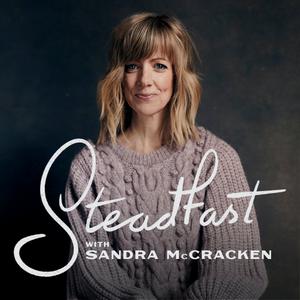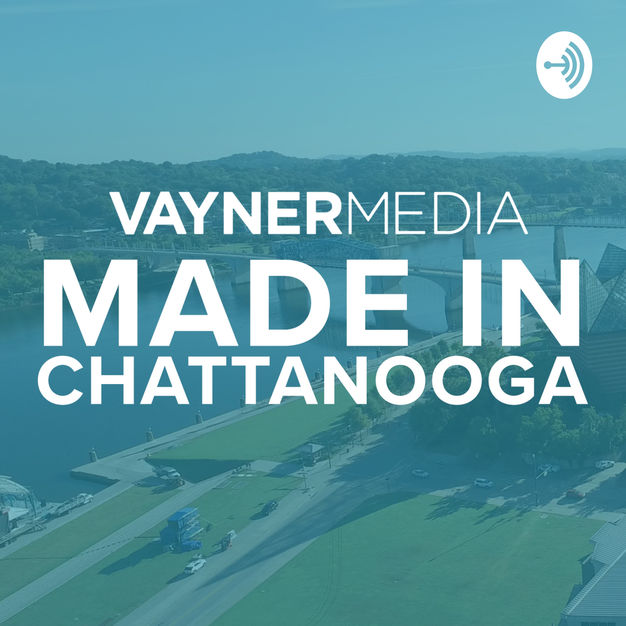
Theology on Tap Chattanooga
Matt Busby, Joseph Schlabs
Welcome to the Theology on Tap Chattanooga podcast. In each episode, we feature a lecture given by a different writer, scholar, or public intellectual. Each of these talks explores the intersection between theology and culture and how theology can help better guide us towards the common good of society. These talks are given live at our monthly Theology on Tap events at The Camp House in Chattanooga, Tennessee.
- 1 hour 21 minutes"God & Architecture: How the Built Environment Influences Our Formation" with Jon Jon Wesolowski
"God and Architecture: How the Built Environment Influences Our Formation"
Similar to how a fish is unaware of the influence of water, architecture shapes our lives. Through the grandeur of cathedrals and the brutality of concentration camps remind us of the profound power of the built world, most of our lives unfold in less dramatic settings, where built environments subtly but meaningfully influence us. In this lecture, Jon Jon will explore the role of how the influence of physical spaces can be used to make us more like Christ in character and conduct.
---
Jon Jon Wesolowski is an armchair urbanist, TEDx speaker, and content creator. He is a devoted advocate for pedestrian rights, passionately connecting diverse groups to drive positive change.
All the socials - follow Jon Jon on Instagram and TikTok.
Sign up for his new Substack.
8 May 2024, 3:00 pm - 1 hour 35 minutes"The Psychology of Reconstructing Faith After Spiritual Trauma" with Dr. Preston Hill
Our annual partnership with Richmont Graduate University & the Spiritual First Responders Project on the intersection of theology & psychology. The event was titled "An Evening on Trauma, Faith, & Reconstruction" and featured lectures by Dr. Hillary McBride & Dr. Preston Hill.
"The Psychology of Faith Reconstruction After Spiritual Trauma" by Dr. Preston Hill
Many people experiencing faith deconstruction feel spiritually homeless but also continue to search for spiritual meaning in life, though it is unclear how they can flourish as desired. This talk will review a current large scale research project that facilitates mentally-healthy spiritual meaning-making for this population. This talk will discuss the challenges and possibilities for "remixed" spiritual experience among this population by setting faith deconstruction and reconstruction in psychological and theological context and drawing implications for mental health care among this group.
Preston Hill (PhD, MLitt, University of St Andrews) is Assistant Professor of Integrative Theology at Richmont Graduate University, where he serves as the Chair of Integration and Director of the Doctor of Ministry Program. His doctoral research offers the first book-length study of Christ’s descent into hell in the theology of John Calvin. His current research focuses on reformation theology, science, mental health, and trauma theology. His latest publications include Dawn of Sunday: The Trinity and Trauma-Safe Church (Cascade, 2021), and a forthcoming volume entitled Christ and Trauma: Theology East of Eden (Cascade). Preston is a clinical pastoral therapist under supervision and ordinand in the Anglican tradition.
12 April 2024, 2:35 pm - 54 minutes 21 seconds"Growing Ourselves Up" with Dr. Hillary McBride
Our annual partnership with Richmont Graduate University & the Spiritual First Responders Project on the intersection of theology & psychology. The event was titled "An Evening on Trauma, Faith, & Reconstruction" and featured lectures by Dr. Hillary McBride & Dr. Preston Hill.
"Growing Ourselves Up: Understanding the Long Term Impact of Spirituality Traumatic Contexts on the Development of Self" by Dr. Hillary McBride
Foundational psychological theories of development and attachment have identified what people need in order to become more of themselves, including the steps necessary for a person to arrive at adulthood with the skills, capacity, and ego strength to face the demands and pleasures of living in a psychically rooted and interconnected way. Models of family systems can be used to understand how the interpersonal context around us supports us to, or inhibits us from, meeting these developmental steps in light of our desire for connectedness and relational safety. Informed by these theories, this talk will explore how extended time in a spiritually abusive and traumatic context (often called a family) can challenge and complicate typical psychosocial development and contribute to distress in adulthood. Ways to support the healthy development of self and organize the disorganized development will be discussed.
Dr. Hillary McBride is a registered psychologist, a researcher, author and podcaster, with expertise that includes working with trauma and trauma therapies, embodiment, and the intersection of spirituality and mental health. Her first book, Mothers, Daughters, and Body Image: Learning to Love Ourselves as We Are, was published in 2017; she was the senior editor of the textbook Embodiment and Eating Disorders: Theory, Research, Prevention, and Treatment, which was published in 2018. Her most recent bestselling book The Wisdom of Your Body: Finding wholeness, healing and connection through embodied living came out in the fall of 2021. She has been recognized by the American Psychological Association, and the Canadian Psychological Association for her research and clinical work. In addition to being a teaching faculty at the University of British Columbia, she is an ambassador for Sanctuary Mental Health, and the host of CBC's award winning podcast Other People's Problems. Hillary makes her home in the pacific northwest in British Columbia, Canada.
12 April 2024, 2:28 pm - 1 hour 16 minutes"Women Who Do" with Dr. Holly Carey
Women Who Do: What We Can Learn from Female Disciples in the Gospels
When we think of disciples, we often picture the Twelve – the small group of men who followed Jesus throughout his ministry. But Jesus had many disciples, and the gospels are clear that we, as Christians, can learn from all of the people who followed Jesus. In her lecture, Dr. Carey will highlight the importance of female disciples in Jesus’s ministry and in the shaping of our understanding of what it means to follow Jesus faithfully, courageously, and sacrificially.
Dr. Holly Carey holds a PhD in New Testament and Early Christian Origins from the University of Edinburgh and serves as the Professor of Biblical Studies at Point University.
12 March 2024, 4:49 pm - 1 hour 27 minutesEvangelical Worship: An American Mosaic with Dr. Melanie Ross
"Evangelical Worship: An American Mosaic" with Dr. Melanie Ross
6:30 - Lecture Begins
1:04:30 - Q & A
In partnership with UTC - Department of Philosophy & Religion
Evangelicalism has undergone seismic and controversial shifts in worship over the last forty years, particularly in the areas of preaching and music. In this talk, liturgical scholar Melanie Ross shares stories from her ethnographic research of congregations, discusses trends and shifts she has observed, and offers insights about what churches can learn from each other across lines of differences. She suggests that evangelical worship is more than a manipulative effort to arouse devotional exhilaration. It is a vibrant site of identity formation: the place where evangelicals’ ideas, beliefs, and commitments interact with larger religious traditions in an ongoing, mutually-constituting process.
Professor Melanie Ross works at the intersection of ecumenical liturgical theology, North American evangelicalism, and the worship practices of contemporary congregations. Her first book, Evangelical vs. Liturgical? Defying a Dichotomy (2014) brings together historical analysis, systematic theology, and congregational fieldwork to argue that the common ground shared by evangelical and liturgical churches is much more important than the differences than divide them. Her second book, Evangelical Worship: An American Mosaic (2021) draws on extensive fieldwork in seven congregations to show how evangelical identity is formed through corporate worship practices.
15 November 2023, 8:19 pm - 1 hour 39 minutesThe Trinity & Work with Dr. Scott Swain
In partnership with Faith Co-Op
5:40 - Lecture • 57:00 - Q&A
"The Trinity & Work: How God's Work Informs Our Work" - How does the work of the triune God inform our work? In 1 Corinthians 12:4-6, Paul provides an illuminating framework for addressing this question. In our various fields of labor, we are called to cooperate with God the Father in service to the Lord Jesus Christ by the gifts of the Holy Spirit. Under God’s blessing, such work holds the promise of glorifying God and serving the common good.
---
Dr. Scott R. Swain is President and James Woodrow Hassell Professor of Systematic Theology at Reformed Theological Seminary in Orlando, Florida. Dr. Swain has served on the RTS faculty since 2006, having previously taught at Southwestern Baptist Theological Seminary in Fort Worth, Texas.
His main research interests include the doctrine of God, theological interpretation of Scripture, and modern Protestant theology, and he has published a number of books and essays on these topics. With Dr. Michael Allen, he serves as general editor of two series: Zondervan Academic’s New Studies in Dogmatics and T & T Clark’s International Theological Commentary.
19 October 2023, 7:09 pm - 1 hour 10 minutesBy Bread Alone with Kendall Vanderslice
Lecture at 5:45
Q & A begins at 42:00
Our spiritual lives are deeply connected to bread―the bread we break with family and friends and the Bread that is Christ’s Body, given and broken for us. Kendall Vanderslice, a professional baker and practical theologian who spends her days elbow-deep in dough, believes that there is no food more spiritually significant than bread―whether eating, baking, sharing, or breaking. She will share how God uses bread throughout the Bible to teach us about his character and provision for us, as well as how the chemistry of breadmaking itself reveals the beauty of our Creator.
Kendall Vanderslice is a baker, writer, and the founder of the Edible Theology Project. A graduate of Duke Divinity School (Master of Theological Studies), Boston University (MLA Gastronomy), and Wheaton College (BA Anthropology), she has committed her life to the study of food and community formation. Kendall is a professionally trained baker, having learned from several top American pastry chefs. In 2018, she was named a James Beard Foundation national scholar for her work bridging food and religion. She is the author of "We Will Feast: Rethinking Dinner, Worship, and the Community of God" and "By Bread Alone: A Baker’s Reflections on Hunger, Longing, and the Goodness of God."
Get the book on our Bookshop.org
Learn more about Kendall and her work at edibletheology.com
3 October 2023, 4:36 pm - 52 minutes 48 secondsMy Body & Other Broken Empires with Lyndsey Medford
We are living in a world that is sick. Both literally sick, with 60 percent of adults in the US living with a chronic illness and rising rates of autoimmune diseases in particular, including long COVID, and figuratively sick, facing ever increasing rates of burnout, anxiety, and disconnection. As a writer, activist, and theology student, Lyndsey Medford, draws on her experiences with a rare autoimmune disease to illuminate the broader lessons we need to learn, in order to heal what ails us individually and communally. Whether our burnout stems from illness, systemic racism, poverty, or simply sin's separation, we're all in need of hope, and we are called to heal together.
Lyndsey Medford is a writer, activist, and sometimes disabled person with a rare, chronic autoimmune disease. Her writing has been featured in The Deconstructionist's Playbook, Sojourners, 100 Days in Appalachia, The Wakening, and Our Bible App. She holds a master of theological studies degree from Boston University School of Theology. She and her husband live in Chattanooga, Tennessee.
30 May 2023, 4:18 pm - 1 hour 15 minutesThe Trinity & Trauma-Safe Churches with Dr. Preston Hill
"The Trinity & Trauma-Safe Churches" with Dr. Preston Hill
Whether we realize it or not, our churches are full of those who have experienced and are living with the aftereffects of horror and trauma, whether as survivors, carers, or perpetrators. The central question of this book is simple: How can our churches become open to the Trinity such that they are trauma-safe environments for everyone? How can we join the triune God to become trauma-safe churches? While the reality is bleak, the church can dare to hope for healing because of the reality of God and the body of Christ. Using the metaphor of the dawn of Sunday, the authors propose a double witness to trauma that straddles the boundary between the deadly silence of Holy Saturday and the joy of Easter Sunday. While witnessing loss and lament we can also be open to the possibility of new life through God’s trinitarian works of safety and recovery in the church. This involves adopting some basic principles and practices of trauma safety that every pastor, congregation, and layperson can begin using today. Creating trauma-safe churches is possible through God the Trinity.
Preston Hill (PhD, MLitt, University of St Andrews) is Assistant Professor of Integrative Theology at Richmont Graduate University, where he serves as the Co-Chair of Integration and the Director of the Doctor of Ministry Program. His doctoral research offers the first book-length study of Christ’s descent into hell in the theology of John Calvin. His current research focuses on reformation theology, science, and mental health. His latest publications include Dawn of Sunday: The Trinity and Trauma-Safe Church (Cascade, 2021), and a forthcoming volume entitled Trauma Theology: Perspectives on Christ and the Wounds That Remain (Fortress Academic).28 April 2023, 2:02 pm - 1 hour 18 minutesMaking Christ Real: The Ascension in Our Everyday with Dr. Sam Youngs
The social and political life of the church is in upheaval, as the currents of our polarized culture invade the Christian witness from both within and without. We desperately need a re-centering on the radical work of Jesus, even if this means ceding our securities and curating a holy suspicion of the world's power structures. In this lecture and in his new book, Making Christ Real, Dr. Sam Youngs argues that the ascension of Christ is an untapped resource in this regard, with invigorating implications for both spiritual formation and cultural engagement. Come and hear a new and powerful theological rendering on the meaning of the ascension for our everyday experience in difficult times.
Samuel J. Youngs serves as an associate professor of Christian studies at Bryan College, adjunct professor of theology and church history at Richmont Graduate University, and the Dean of the Mission School of Ministry. He completed his PhD under Paul Janz and Oliver Davies at King’s College London. His first book, The Way of the Kenotic Christ, was a major English monograph on the Christology of Jürgen Moltmann, and he has published on interreligious topics, theology and psychology, the thought of Martin Luther, the Old Saxon Heliand, natural theology, narrative pedagogy, kenosis, and staurology.Lecture begins at 2:54
Q&A begins at 49:10
15 March 2023, 7:25 pm - 44 minutes 44 seconds"Space, Sound, & the Body in American Evangelicalism" Dr. Tucker Adkins
"Space, Sound, & the Body in American Evangelicalism" with Dr. Tucker Adkins
Evangelicals are perhaps the most discussed group in American Christianity, but such conversations often revolve around two distinctions: politics and theology. Evangelicals vote this way, and evangelicals believe these things. In this way, we typically cast evangelicalism as longstanding, identifiable sets of ideological and doctrinal convictions that steer conservative voting blocs and vaguely underpin “born-again” belief. By contrast, this lecture urges us to consider how the physical world—especially space, sound, and the body—have always distinguished so-called “evangelicals” from other Christians in the United States.
Paying particular attention to its early American figures, this presentation asserts that “evangelicalism” first took shape through revivalists’ manipulation of their bodies, voices, and terrain. Black, white, and indigenous people who received the “new birth” made their movement legible on the landscape, by expelling “frightfull Shrieks & groans” during their preachers’ cutting sermons, gathering outside of consecrated church spaces, and succumbing to uncontrollable bodily “exercises.” By foregrounding examples of evangelicals’ physical, lived religious experiences, we find that their controversial choreography of space, sound, and the body—not just what they believed—radically redefined what it meant to be Protestant in America.
Dr. Tucker Adkins teaches religious history at Calvin University in Grand Rapids, MI. His focus is on religious experience and lay spirituality in the early modern British Atlantic world.
15 November 2022, 8:25 pm - More Episodes? Get the App
Your feedback is valuable to us. Should you encounter any bugs, glitches, lack of functionality or other problems, please email us on [email protected] or join Moon.FM Telegram Group where you can talk directly to the dev team who are happy to answer any queries.
 Always Forward Podcast
Always Forward Podcast
 Steadfast With Sandra McCracken
Steadfast With Sandra McCracken
 Made In Chattanooga by VMNooga
Made In Chattanooga by VMNooga
 Audio Daily Office | The Trinity Mission
Audio Daily Office | The Trinity Mission